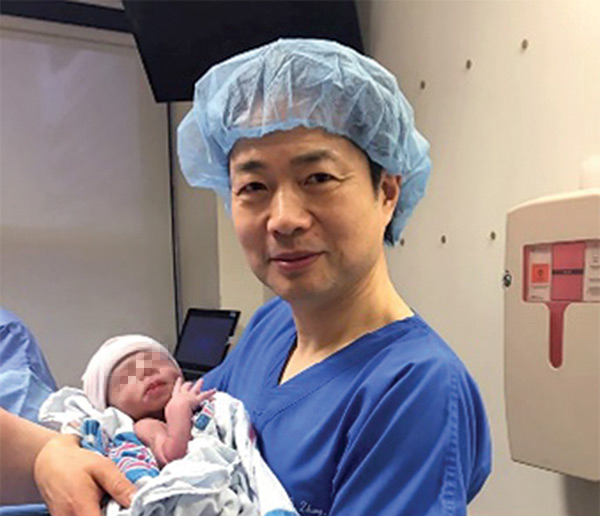Already from the start, ethical and regulatory questionmarks have surrounded this experiment. First, objections have been raised about the ethics of Dr. Zhang to create MRT embryos in the US to then be moved to foreign soil in order to circumvent US regulatory frameworks and scientific guidelines for MRT. Second, while Dr. Zhang had described why Mexico was chosen as the country to host the experiment by claiming that “there are no rules” regarding MRT there, subsequent legal analysis by my bioethics scholarly colleagues César Palacios Gonzalez and María de Jesús Medina Arellano has revealed that the experiment very likely breached a number of Mexican legal statutes related to research and reproductive medicine. A popular presentation of this finding can be accessed here.
In the meantime, the US Food and Drug Administration, yes, the mighty FDA, has apparently been silently probing the matter with regard to Dr. Zangh's relationship to US federal law. For just a few days ago, Mary A. Malarkey, Director of the FDA's Office of Compliance and Biologics Quality, sent a briskly phrased (to say the least) official letter to Dr. Zhang, enumerating a number of US federal legal violations allegedly involved in the Mexico MRT adventure. I have uploaded the letter to to Google and made it available for anyone to view and share, here. Among the allegations made in this letter are the following:
-
... you are using MRT to form a genetically modified embryo, which is subject to FDA’s regulations with respect to human cells, tissues, or cellular or tissue based products (HCT/Ps) under 21 CFR Part 1271, issued under authority of section 361 of the Public Health Service Act (PHS Act [42 U.S.C. 264]). HCT/Ps that do not meet all of the criteria in 21 CFR 1271.10(a) and do not qualify for any exceptions in section 1271.15, are subject to additional regulation, including appropriate premarket review.
The genetically modified embryo that you formed using MRT does not meet all the criteria in 21 CFR 1271.10(a) and does not qualify for any exceptions. /... /
[The HCT/P is] also regulated as a drug as defined under section 201(g) of the Federal Food, Drug, and Cosmetic Act (FD&C Act) [21 U.S.C. 321(g)], and a biological product as defined in section 351(i) of the PHS Act [42 U.S.C. 262(i). Specifically, your processing constitutes more than minimal manipulation of cells or nonstructural tissues, as defined in 21 CFR 1271(f)(2)
To lawfully market a drug that is also a biologic, a valid biologics license must be in effect [42 U.S.C. 262(a)]. Such licenses are issued only after a demonstration of safety, purity, and potency. While in the development stage, such biological drugs may be distributed for clinical use in humans only if the sponsor has an IND application in effect as specified by FDA regulations (21 U.S.C. 355(i); 42 U.S.C. 262(a)(3); 21 CFR Part 312). The MRT-produced HCT/P is not the subject of an approved biologics license application (BLA) nor is there an IND in effect. / ... /
Nor is exportation permitted unless it meets the requirements of an applicable export exemption./ ... / your export at issue here did not meet the requirements of any of these export exemptions. / ... /
The Director signs off by noting:
This letter is not intended to be an all-inclusive list of violations. It is your responsibility to ensure full compliance with the FD&C Act and the PHS Act and their implementing regulations.
We request that you notify this office, in writing, of the steps you have taken or will take to address the violation noted above and to prevent recurrence.
While I am cautiously positive to having well-regulated legal room for MRT trials, I have to say I found Dr. Zhang's maverick action very ill-conceived from the start. While the experiment has been subsequently reported scientifically, it is not part of any controlled and planned experimental series that could contribute to the formation of a solid body of scientific evidence to either substantiate or rebut the hypothesis that MRT is a viable medical procedure. Nor was it done in response to any sort of dire medical need, but solely as an attempt to overcome efficiency problems in IVF, thereby lacking any of the ethical justification usually cited as the main reason to allow for human MRT trials. Moreover, as there was no research ethical review, no check has been applied to the consent procedure, making it very likely that the couple who were the patients have been exposed to what is known as the therapeutic misconception. Therefore, the experiment brings to mind the sorry tale of what has become of the once red-hot scientific field of stem cell therapy, nowadays mostly ruined and disreputed by gung-ho experimenters and unchecked, semi-fraudulent commercial operations preying on vulnerable people's desperation in a hunt for money and personal glory. If germ-line gene therapy is to be allowed and able to develop out of MRT experiments, it has to proceed within a very rigid and tight oversight, both scientifically and ethically. Stunts like the one of Dr. Zhang constitute a threat to that. Therefore, I'm very pleased to see FDA yank whatever legal leash it has as hard as it can, and I hope the scientific community will do the same. As a first step, a retraction of the article in Reproductive Biomedicine Online due to false statements regarding ethical and legal status of the reported trial may be in order?
***










